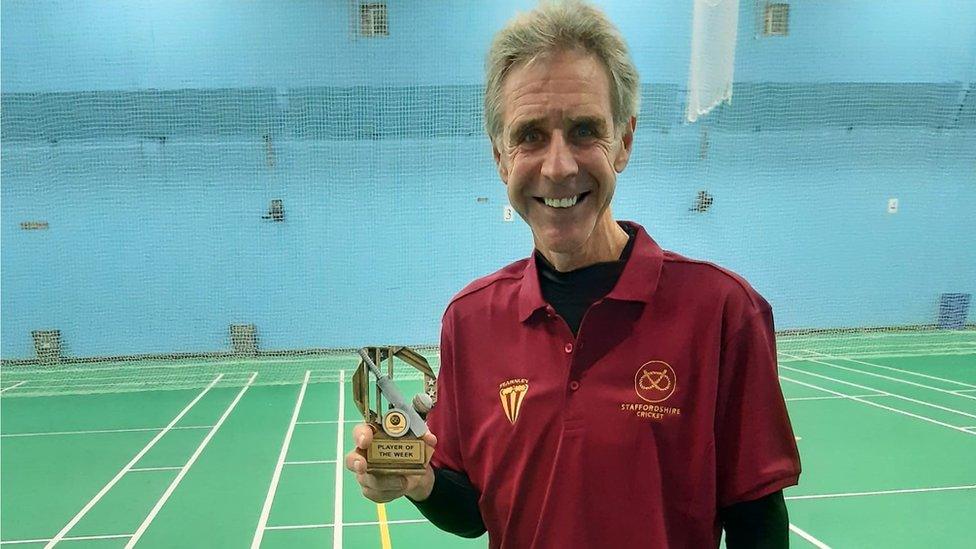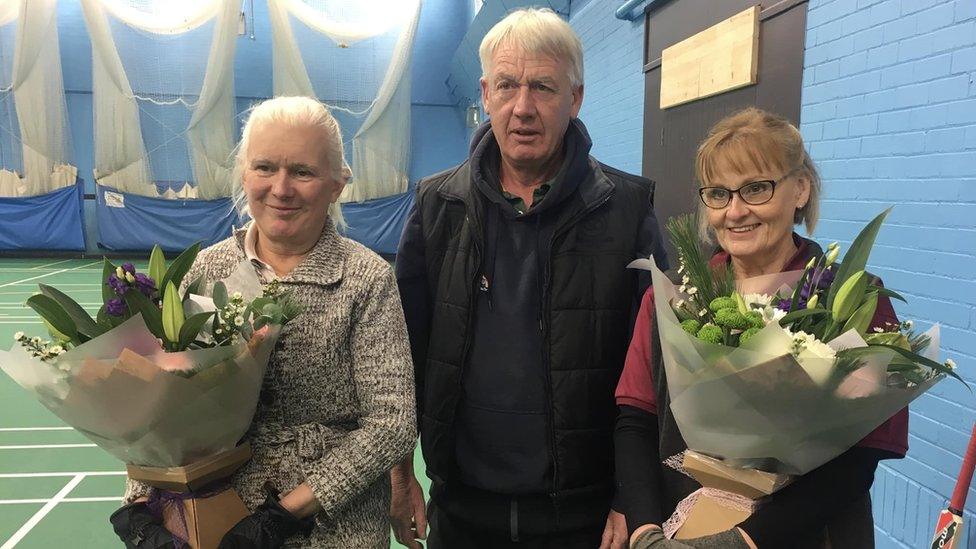Friends' CPR keeps Staffordshire cricketer alive during match
- Published

Ken Wright was taking medication for angina but said he has been told by medics that he could continue to enjoy walking cricket
A man who went into cardiac arrest while playing cricket said he was lucky to be alive after friends performed vital CPR while waiting for paramedics.
Ken Wright, 70, collapsed as he went to bat during his weekly game of walking cricket in Newcastle-under-Lyme.
Friends said they rushed to his aid and performed mouth-to-mouth helping to keep him alive.
"It's seems as if thank you is so small in relation to what's actually been done for me," Mr Wright said.
"These people have saved my life. They've given me another chance," he added.
Mr Wright, from Westbury Park, said he was on the batting team and as he got up to look at what bats were available "everything goes blank".
'Traumatic'
Although on medication for angina which had been diagnosed a few weeks before and waiting for results of a CT scan, he had no pain or warning signs.
Medics had told him to carry on playing unless he felt unwell, he said.
Friend Steve Lightwood from Stone, who was sat next to him before he collapsed on 30 November, said it was traumatic but everyone did what they could.
After seeing him "fall gently to the floor" he said he thought he was having a seizure so it was "all action stations at that point".

Steve Lightfoot said two retired nurses Judith (l) and Barbara (r) helped treat Mr Wright after his collapse
Two cricket members are retired nurses and one, Barbara, "took control" of the situation, he said.
"Barbara was doing mouth-to-mouth... and I took over from her because it's quite tiring performing CPR for any length of time, so we were really lucky, or Ken was really lucky we had a couple of people who were first-aid trained and the ambulance responded really quickly - within five or six minutes they were there," Mr Lightwood said.
"It was traumatic. It was also traumatic for everybody who was there on the night.
"Ken did stop breathing and people were encouraging him by talking to him, whether he heard it - doesn't sounds as though he did.
"It was just shock.. it took a couple of days. That night I never slept a wink - I was reliving the whole thing."
Mr Wright said he had since done some research on cardiac arrests in the community and discovered the survival rate was less than 2%.
"I've been lucky enough to be involved in a group who had that expertise and that knowledge to be able to respond in a way that saved my life," he said.
"It's a thank you all round and something I'll be eternally grateful for."

Follow BBC West Midlands on Facebook, external, Twitter, external and Instagram, external. Send your story ideas to: newsonline.westmidlands@bbc.co.uk, external